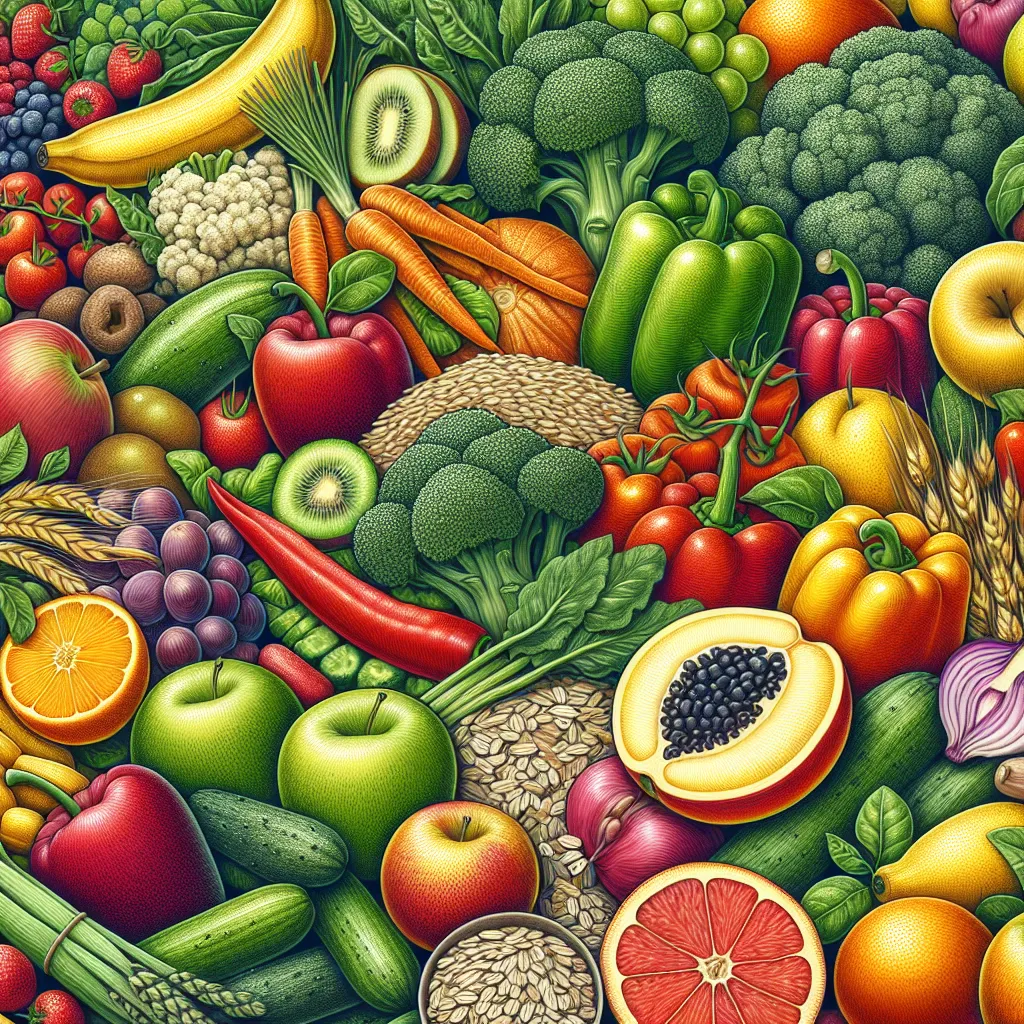5 Key Components of a Balanced Vegan Meal Plan
When planning a vegan meal, it’s essential to ensure that it contains all the necessary nutrients for good health. A balanced vegan meal plan should consist of five key components to provide the body with the right combination of macronutrients and micronutrients. These components include protein, healthy fats, carbohydrates, vitamins, and minerals. By incorporating a variety of plant-based foods, one can easily meet these nutritional needs.
Protein is a crucial component in a vegan meal plan, and it can be obtained from sources such as legumes, tofu, tempeh, and seitan. Including a variety of protein-rich foods ensures that essential amino acids are consumed. Healthy fats, such as those found in avocados, nuts, seeds, and oils, are important for overall health and should be included in a well-rounded vegan meal plan.
Carbohydrates are another vital component and can be derived from whole grains, fruits, and vegetables. These provide the body with energy and fiber. Additionally, a diverse selection of fruits and vegetables ensures an adequate intake of vitamins and minerals. Dark leafy greens, colorful vegetables, and fruits are rich sources of essential nutrients such as vitamin C, vitamin A, potassium, and folate.
In conclusion, a balanced vegan meal plan should incorporate protein, healthy fats, carbohydrates, vitamins, and minerals. By mindful planning and diversifying food choices, individuals can create delicious and nutritionally complete vegan meals to support their overall well-being.
Meal Prep Tips for Vegan Beginners
When transitioning to a vegan lifestyle, effective meal planning and preparation are essential for maintaining a balanced and nutritious diet. For vegan beginners, mastering the art of meal prep can be a game-changer in ensuring that wholesome and satisfying meals are readily available. Here are some meal prep tips to help beginners successfully plan and prepare their vegan meals:
1. Plan Your Meals: Start by creating a weekly meal plan that includes a variety of balanced meals such as grains, legumes, vegetables, fruits, and plant-based proteins. Having a well-thought-out meal plan can save time and ensure that you have all the necessary ingredients on hand.
2. Batch Cooking: Consider batch cooking staple ingredients like quinoa, rice, roasted vegetables, and tofu at the beginning of the week. This will allow you to quickly assemble different meals throughout the week, cutting down on daily cooking time.
3. Utilize Mason Jar Salads: Prepare colorful and vibrant salads in mason jars by layering ingredients like dressing, grains, protein, and leafy greens. Mason jar salads not only look visually appealing but also stay fresh and crisp, making them perfect for grab-and-go lunches.
4. Pre-Cut and Wash Produce: Spend some time washing, peeling, and pre-cutting fruits and vegetables when you bring them home from the market. Having prepared produce in the fridge makes it easier to assemble quick meals and snacks throughout the week.
5. Invest in Quality Containers: Investing in a variety of high-quality, reusable containers in different sizes can make meal prepping a breeze. Ensure that the containers are airtight and suitable for both storing and reheating meals.
Effective meal prep is a foundational strategy for success in maintaining a vegan lifestyle. By following these meal prep tips, vegan beginners can save time, minimize stress, and consistently enjoy delicious and nourishing meals.
Understanding Plant-Based Protein Sources for Meal Planning
When planning successful vegan meals, understanding plant-based protein sources is crucial for ensuring a well-balanced and nutritious diet. Many people wonder how to obtain an adequate amount of protein without consuming animal products. Fortunately, there are numerous plant-based protein sources that can be incorporated into a vegan meal plan.
Legumes such as lentils, chickpeas, and black beans are excellent sources of plant-based protein. They are versatile and can be used in various dishes, including soups, salads, and stews. Additionally, tofu, tempeh, and edamame are derived from soybeans and are rich in protein, making them valuable ingredients in vegan meal planning.
Nuts and seeds are also great sources of protein and can be easily incorporated into meals. Almonds, peanuts, chia seeds, and hemp seeds are just a few examples of nutrient-dense options that provide protein, healthy fats, and other essential nutrients.
Furthermore, whole grains like quinoa, brown rice, and oats contain protein and can serve as the foundation of a vegan meal. By understanding these plant-based protein sources, individuals can strategically plan well-rounded and satisfying vegan meals that adequately meet their nutritional needs.

